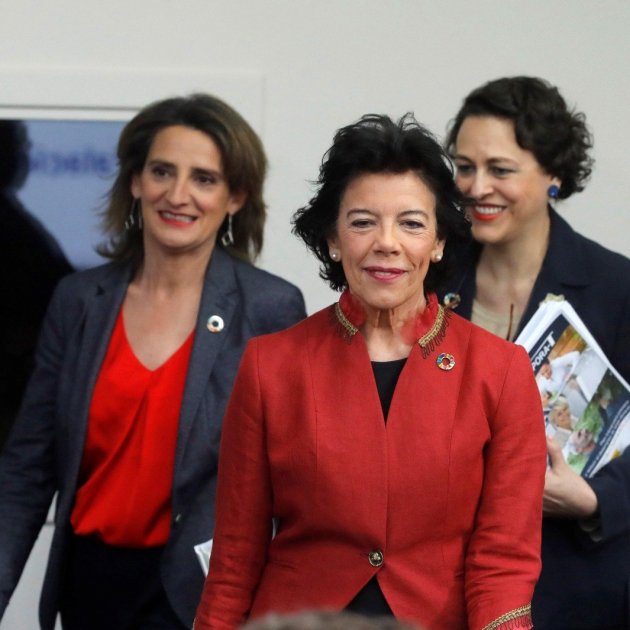For the Spanish government, there's only one route on which Catalonia can move forward to gain increased powers: through negotiation within the current framework of Spain's state of autonomous communities. It was government spokesperson Isabel Celaá who pointed her finger in this direction, after Wednesday's meeting of Pedro Sánchez's cabinet, when she spoke to the press about the "advances in bilateral dialogue" between the central government and the Basque Country authorities. The Basque-Spanish government commission charged with decision-making on competencies has agreed to transfer power over all highways to the autonomous Basque region. She added that work on a similar initiative is proceeding with regard to devolving powers to Galicia.
"This is based on the Statute of Gernika and the first section of the Spanish Constitution," said the Socialist minister. Although the Catalan case was not mentioned, she did make the general point that devolution of self-government powers has to take place "within the framework of the Constitution". She defended article 2 of the Spanish Constitution, which establishes the autonomy of the "regions and nationalities" of the Spanish State.
The PSOE government spokesperson also referred to another subject relating to the Basque Country: public tension and police charges in the town of Errenteria last Sunday, when Ciudadanos leader of Albert Rivera was heavily jeered during an election campaign "walkabout". The locals had even decorated houses with huge yellow ribbons - showing solidarity with the Catalan political prisoners - to "greet" the anti-independence Cs leader. "We refuse any type of coercion or violence during the election campaign," said Celaá, adding: "All parties must have the ability to express themselves in any place without blockades or pressure". She urged all parties to "foster tolerance and good relations in their discourse".
With ten more days of campaigning before the Spanish election, the minister also confirmed the presence of prime minister Pedro Sánchez in the four-way debate to be conducted by Spanish public broadcaster RTVE next Monday. The different parties' right to participation in the media debates proposed by TV networks has been another minor controversy of the campaign. "In equal conditions, the Spanish government will always opt for public television," said Celaá, also backing the work of the Central Electoral Commission which has had to rule on the debate issue.
